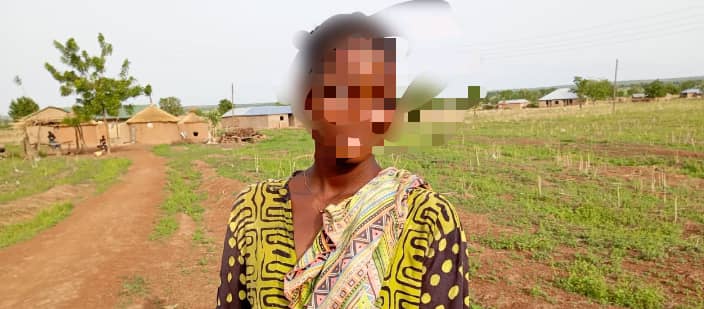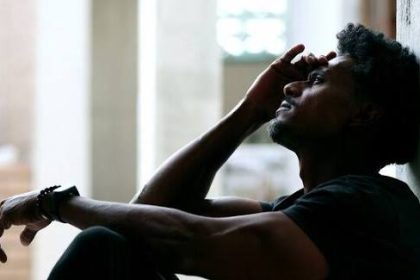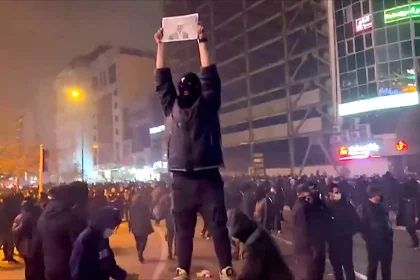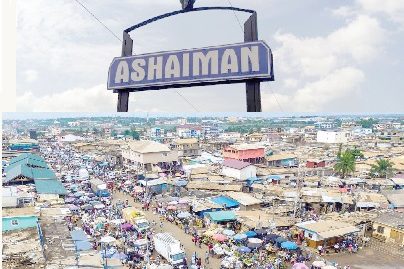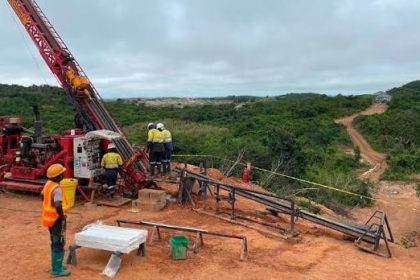Three years ago, when 17-year-old Issah Awuni Musah gained admission into Bawku Senior High School to study Science programme, he was focused on one goal-to realise his dream of becoming a nurse, to heal the sick and serve his nation diligently.
Today, his hands, conscience, and energy once meant to heal and restore life have been reduced to digging from one pit to another at a small-scale illegal mining site near Zebilla, searching for gold he might never find after losing his father in the protracted Bawku chieftaincy conflict.
Dreams buried by bullets
Issah’s dream of becoming a nurse was buried the day his father and four others were shot and killed in a reprisal attack following the murder of an elderly man and his son in the early hours of December 17, 2022, by unknown gunmen.
“I wanted to become a nurse and I was working fiercely towards that, but when my father died, everything ended. Though Senior High School is free, my mother couldn’t afford to buy my provisions.
Besides, everything he said his father shouldered everything and he had no option but to step up as a man to work on the farm and engage in illegal mining to feed himself and, if possible, my mother and three siblings,” he told the Ghana News Agency sorrowfully.
His story is not different from that of 18-year-old Abdul Abugre, who once dreamt of becoming a lawyer.
His father also died in the conflict, and when his uncle, who had been taking care of him was also killed in a revenge attack, his education ended abruptly in Senior High School two.
“When my uncle died, I lost everything. I just stayed home and never returned to school after his burial, because even when my father was alive, it was my uncle who took care of us. In Bawku, there is an orphan in almost every household, and getting help is not easy,” he lamented.
Their stories of stolen futures echo that of 19-year-old Azumah Zeliah Abagna, who now washes bowls at the Bawku market.
For Zeliah, beyond losing her dream of becoming a medical doctor, the memory of how her father and sibling were murdered remains a wound that may never heal.
“It is not that I was told my father and sibling were killed, I was there when the evil men invaded our home and shot them dead. They asked me not to cry or they would kill me too. I foolishly kept quiet, and now it feels like dying that day would have been better because nothing good has happened to me since,” she bemoaned.
These stories are just a few among the many children whose futures have been stolen, and whose only inheritance is trauma and fear.
A security threat beyond Bawku
The conflict has now spread beyond the boundaries of Bawku to Bolgatanga, the regional capital of the Upper East Region and to the North East and Ashanti Regions, where key personalities from both factions have allegedly been targeted and killed.
For instance, on Wednesday, January 17, 2024, at about 1900 hours, Mr Alhassan Azumah, a Deputy Registrar of the Bolgatanga Technical University, who hailed from Bawku and belonged to one of the factions, was shot dead by two gunmen on a motorbike at his residence in Sokabisi, a suburb of Bolgatanga, allegedly by opponents in the conflict.
In what appeared to be a reprisal attack, on June 5, 2025, Mr Mohammed Zibrim Zia-Ulhak, a pharmacist, also from Bawku and belonging to the opposing faction, was shot dead in his private vehicle around 2300 hours in Tindonsobligo, another suburb of Bolgatanga.
Again, on July 22, 2025, Naab Abdul-Malik Azenbe, the Kusasi Chief in the Ashanti Region, who also served as the Kaadi Divisional Chief in the Binduri District was shot dead by unknown assailants at Asawase, a suburb of Kumasi.
On 27th October 2024, eight people travelling in a bus from Sunyani to the Upper East were blocked by gunmen at Gbimsi, a suburb of Walewale, asked about their identity, and shot dead.
All these incidents have been linked to the protracted conflict in Bawku, and behind these deaths are children and dependents left hanging in the balance.
The conflict
The Bawku conflict, one of Ghana’s oldest and deadliest conflict dating back to the 1950s, stems from a chieftaincy dispute between the Kusasis and Mamprusis, each claiming rightful ownership of the Bawku skin.
What began as a disagreement over traditional leadership has evolved into an entrenched ethnic conflict that resurfaces with frightening regularity.
According to police records, more than 200 people have died as a result of the conflict since its re-emergence in November, 2021, but residents believed the figure was understated.
In April 12, 2024, Mr Stephen Yakubu, the former Upper East Regional Minister while addressing the Muslim community during the celebration of Eid-Ul-Fitr in Bolgatanga, revealed that more than 300 children have been orphans due to the Bawku conflict.
Although this figure has not been independently verified by the GNA, it highlights the grave concern that the conflict is posing to the future of children and the increasing demand for welfare services among vulnerable population.
Thousands have been displaced, homes burned, farms abandoned, and livelihoods destroyed.
Markets once filled with traders are now half-empty, while armed patrols and curfews have become a normal part of life.
The sound of gunfire has essentially replaced the laughter of children, and many of them grow up knowing little about Bawku except that it is a place where dreams die young, where peace is a forgotten word, and where the hope of a better future fades beneath a conflict they do not understand.
Government efforts and growing disillusionment
Despite several peace initiatives, the violence persists. Successive governments have deployed the military and enforced curfews, banned motor riding and wearing of smocks yet the guns keep firing.
Members of the Bawku Local Peace Committees from both factions have lamented that the interventions by successive governments over the years only offered temporary relief without addressing the deep-rooted causes of the conflict.
Mr Ramani Asaana Bukari, an Assembly Member for Bawku Central and a member of the Local Peace Committee on the Kusasi side, noted that the idea of imposing curfews was a misplaced policy driven by political convenience rather than a genuine security strategy.
“Seventy per cent of the murders that occur in Bawku, including those in Binduri that have left many children as orphans and stalled their dreams, happen during curfew hours simply because there are not enough security patrols during those hours, and as people are confined to their homes, visibility is low,” he stated.
“Is it not even strange and a cause for worry that for about four years now, no one has been jailed? And this does not apply to a particular government. People are arrested in connection with murders, and the next day they are out terrorising people,” he added.
Mr Jamiu Kasim, a member of the Local Peace Committee on the Mamprusi side, said the curfew has no real impact in terms of reducing the killings in the area.
“The curfew can’t be a solution. How can you impose a curfew when there are not enough security officers to patrol? Just November 11, 2025, a woman was killed in her house here, and this happened during the curfew hours. It is better if the curfew is lifted because it has no impact.
“The government reacts only after people die, and it has been the case for years. But they don’t solve the chieftaincy dispute. Until that’s settled, this will never end,” he added.
Expert Views and Recommendations
Mr Ali Anankping, a peace and security consultant and former Upper East Regional Executive Secretary of the National Peace Council, who has worked in the area for over a decade, noted that the surest way to resolve the conflict was to tackle its root causes.
“One sure way to resolve the Bawku conflict is to sit with both parties, understand their grievances, and begin to address them from the root rather than only reacting after violence erupts and imposing curfews. That cannot be a long-term solution, and it’s the reason the conflict keeps recurring,” he stated.
According to him, it was not enough for the government to prioritise only the containment of the conflict; it must address the underlying issues to resolve or mitigate its violent nature and impact.
“Security operations must go hand in hand with reconciliation and social justice. I am happy that there is ongoing mediation led by the Asantehene, Otumfuo Osei Tutu II, to find a solution to the conflict. It is my hope that both parties, in all sincerity, will cooperate and comply,” he added.
He warned that the prolonged instability in Bawku creates fertile ground for violent extremism, especially given the town’s proximity to Burkina Faso, where extremist groups were active.
Col. Festus Aboagye (Rtd), a Security Analyst, recommended that the government needed to invest more in intelligence resources to address the conflict.
He noted that the peace in Bawku was being consistently undermined by elements he described as “spoilers,” who were determined to perpetuate instability in the region.
“Both the security intelligence operatives and the technologies that the government has must be brought to bear on the Bawku conflict.
These elements that we call spoilers will do anything and everything to ensure that the peace is not realised,” he said.
Until the government considers these proposed measures, dreams of innocent children will continue to be buried by bullets. The survived children of Bawku are crying for peace and may all gun wailing citizens stop pulling the triggers for the sake of peace and unity, after all Bawku is one not two.


